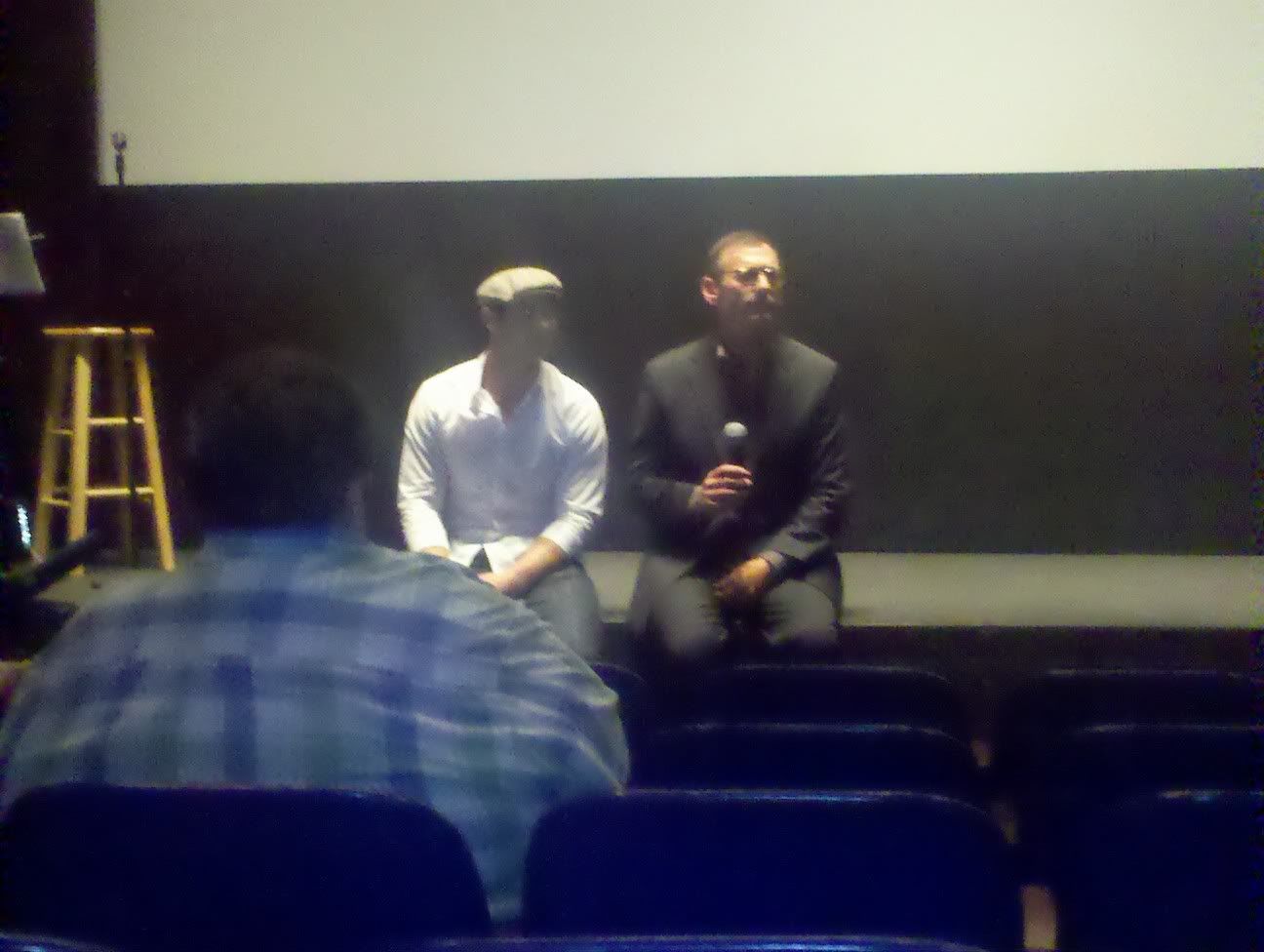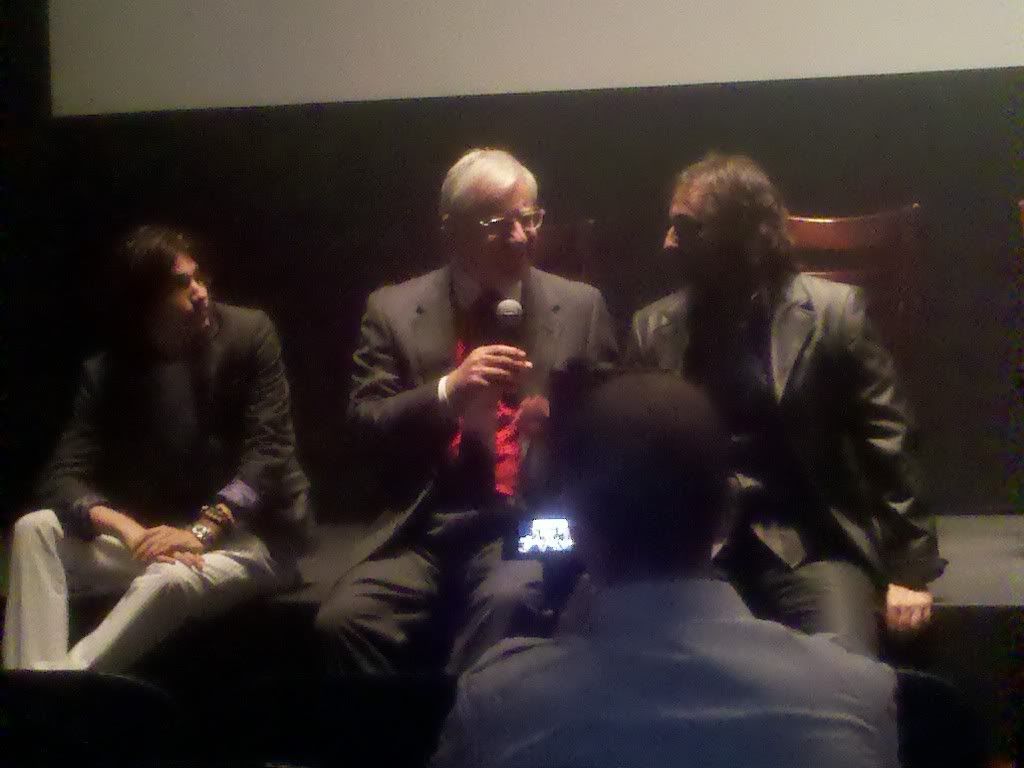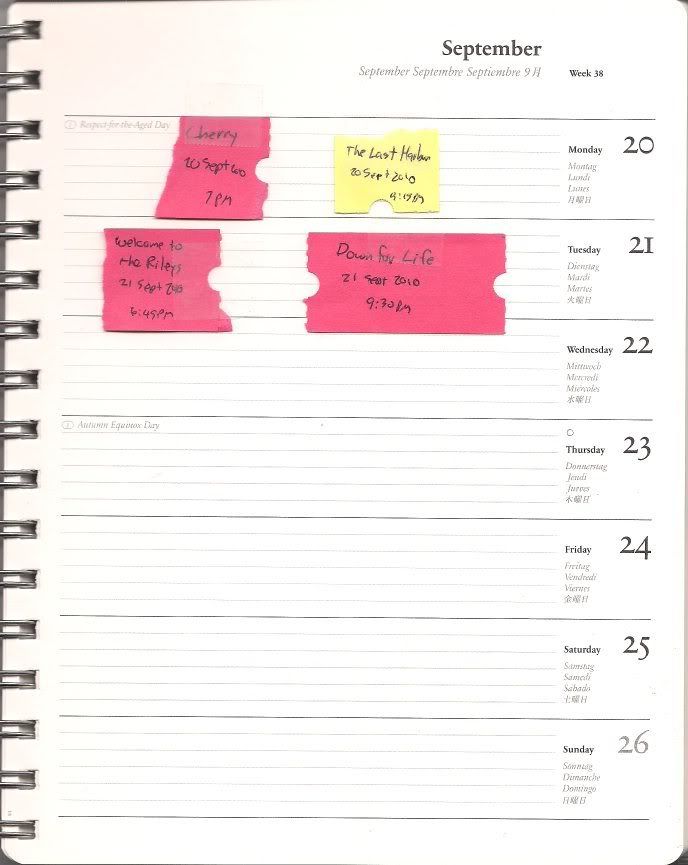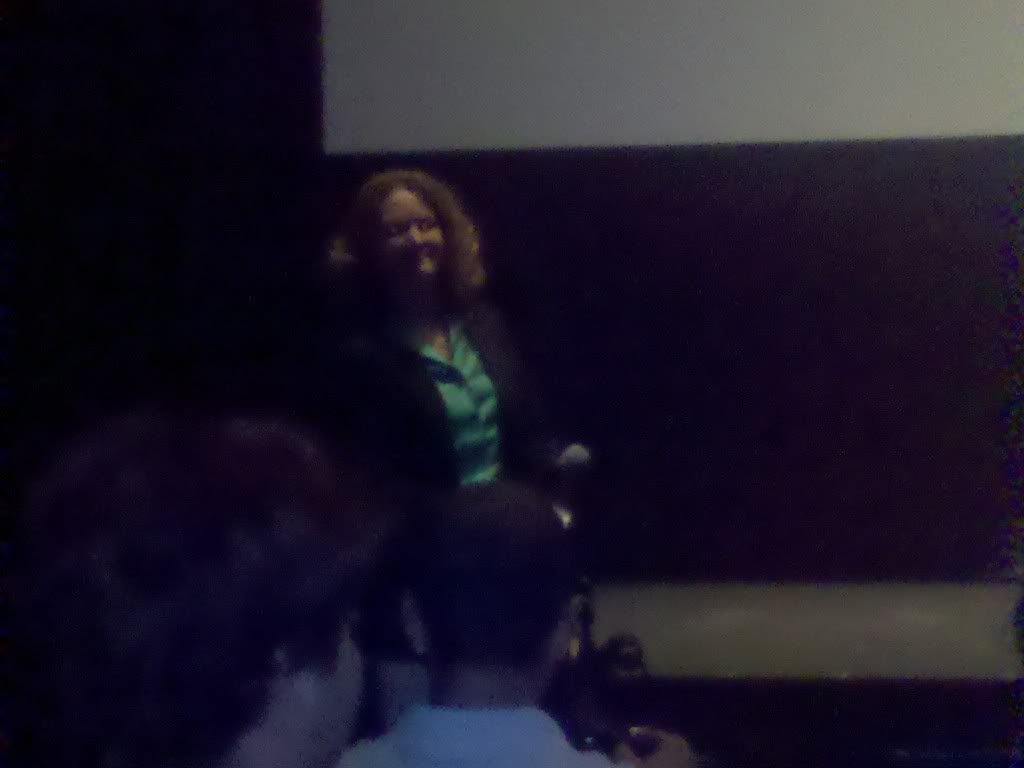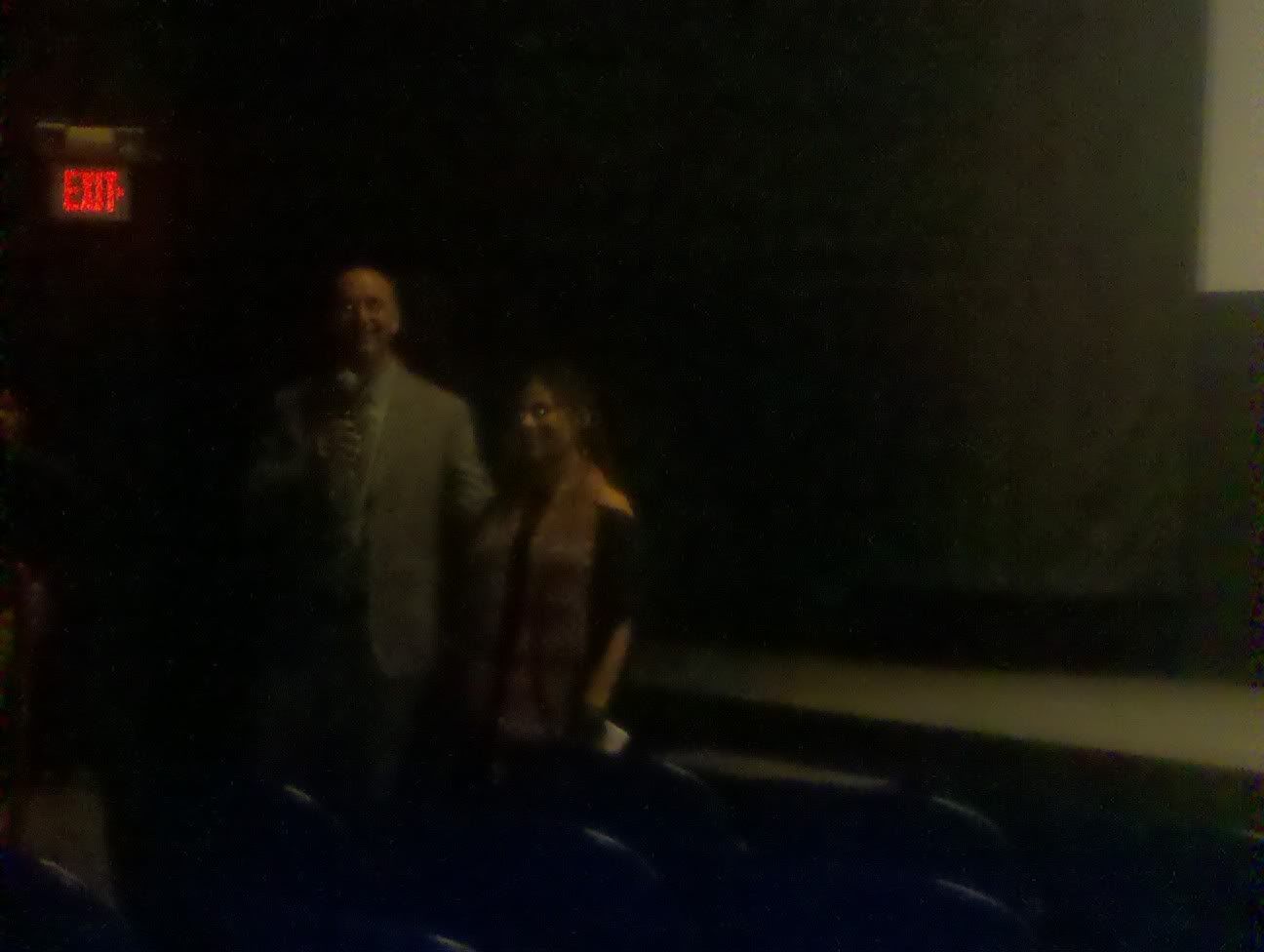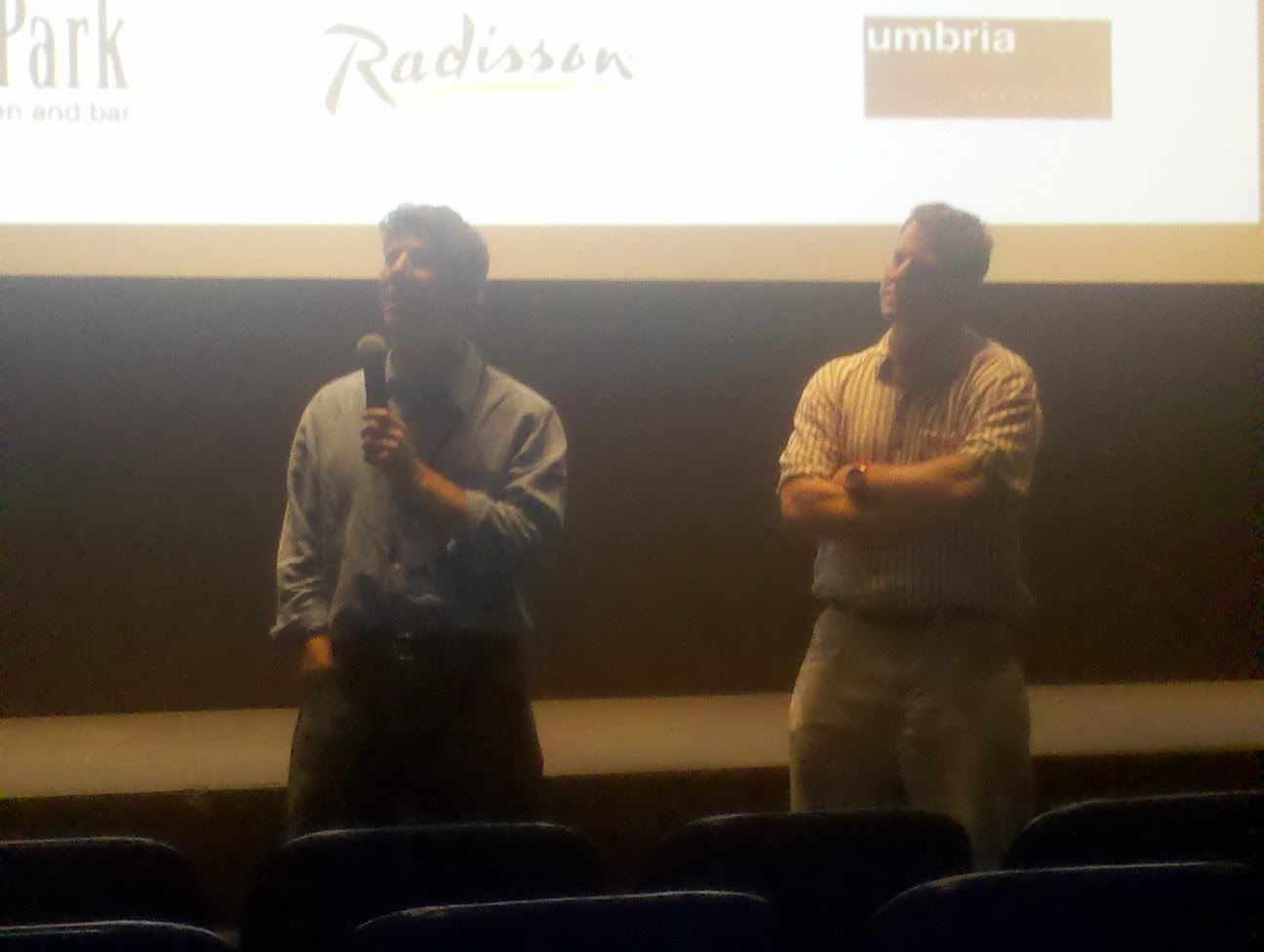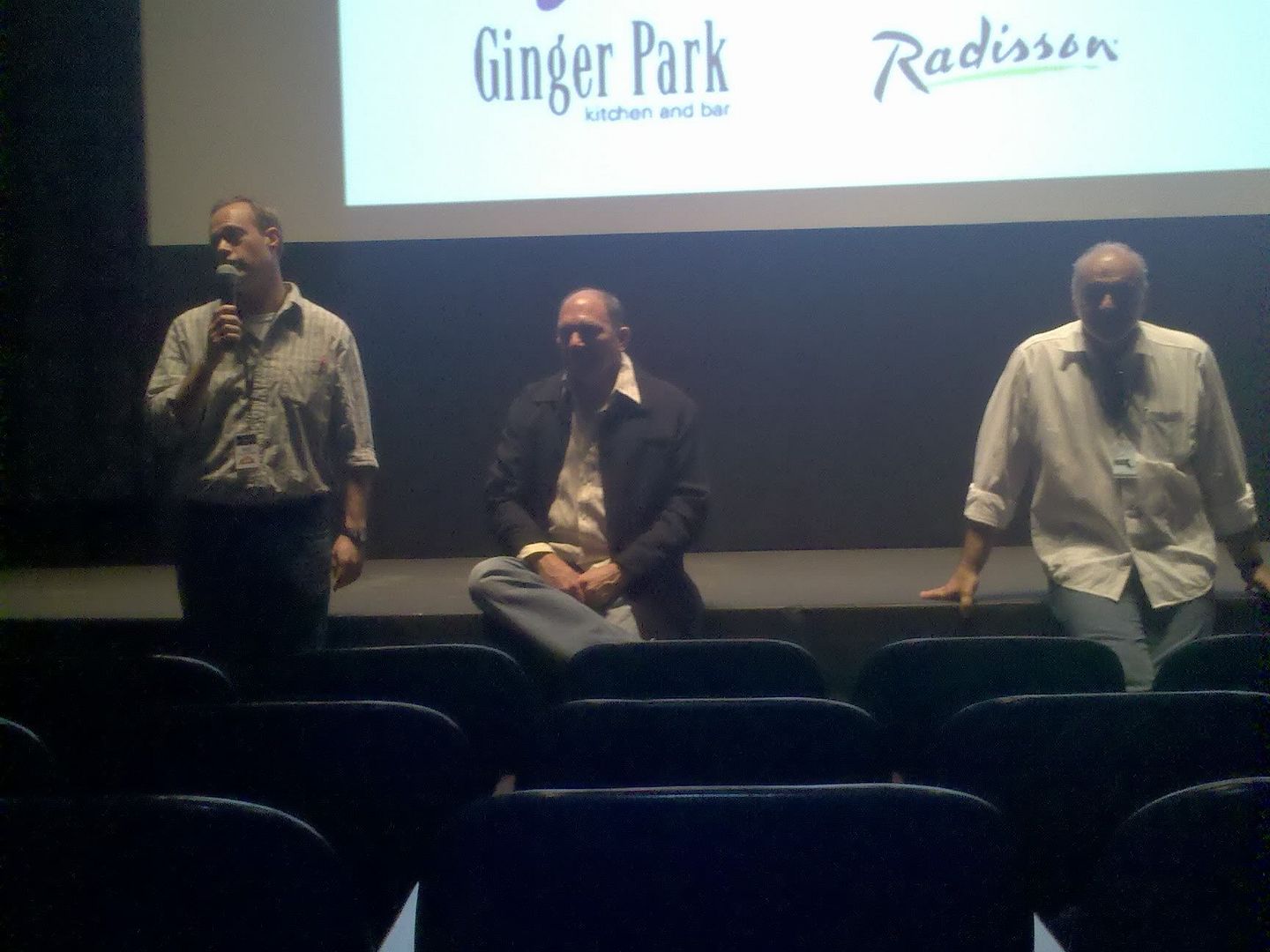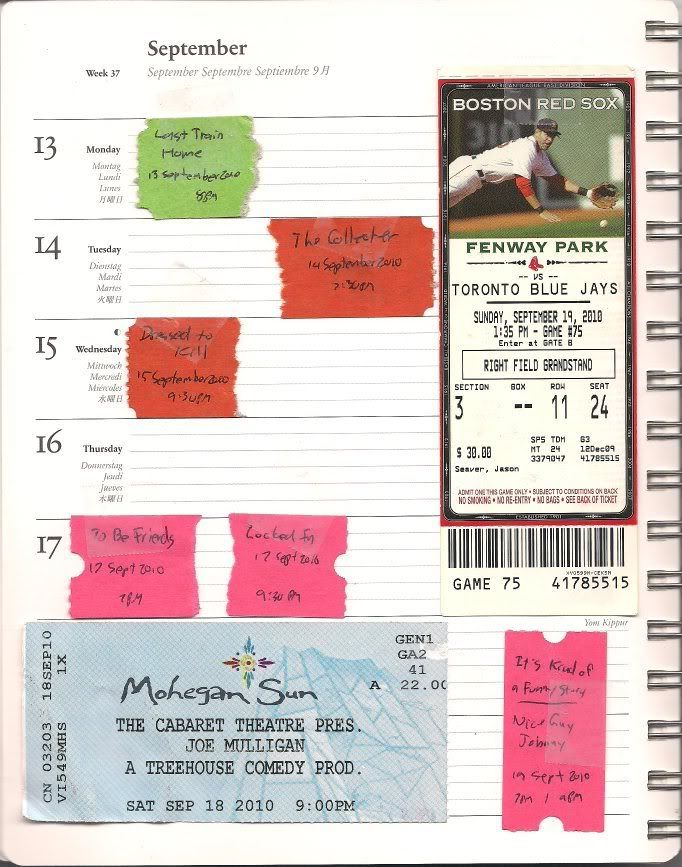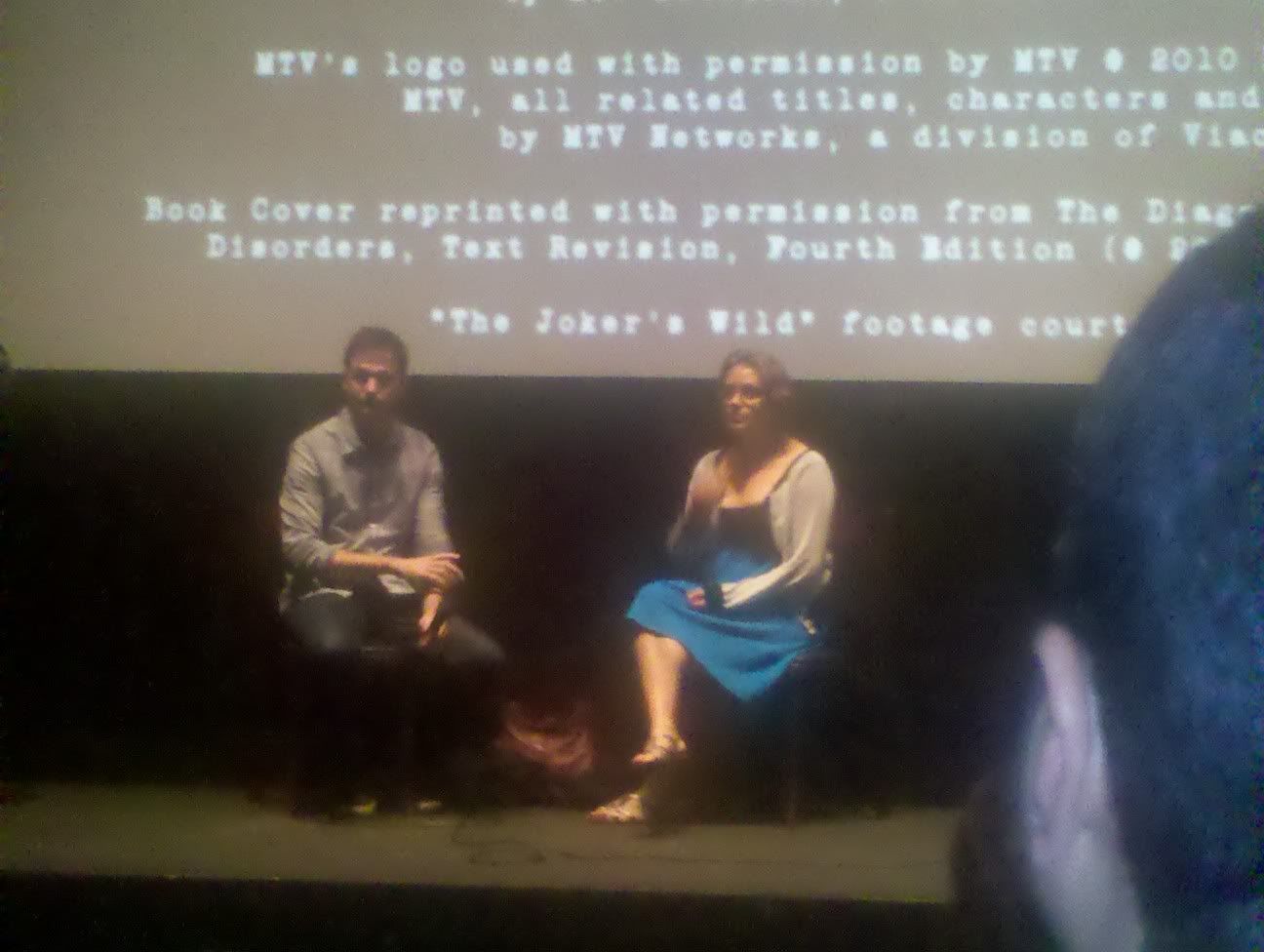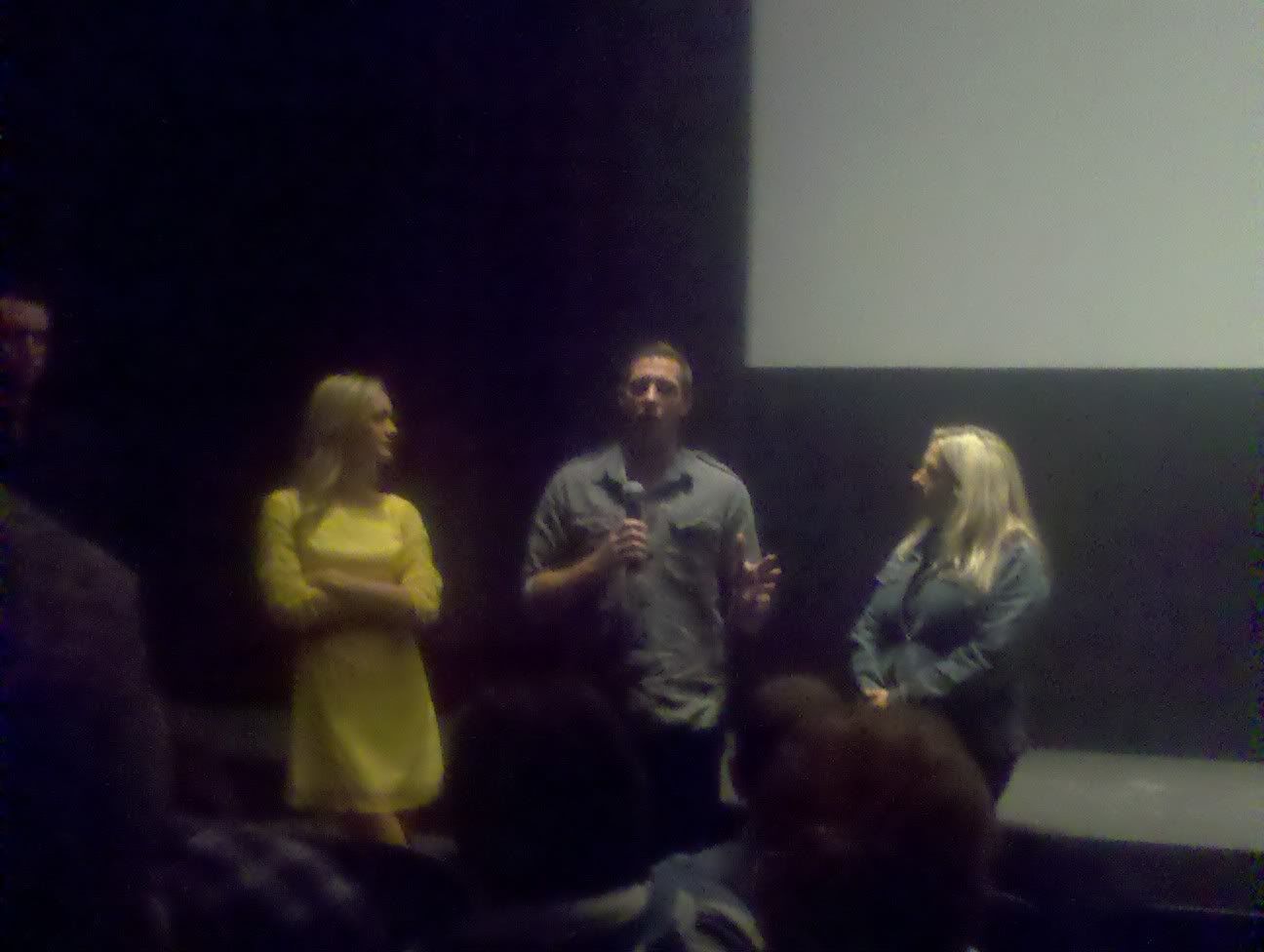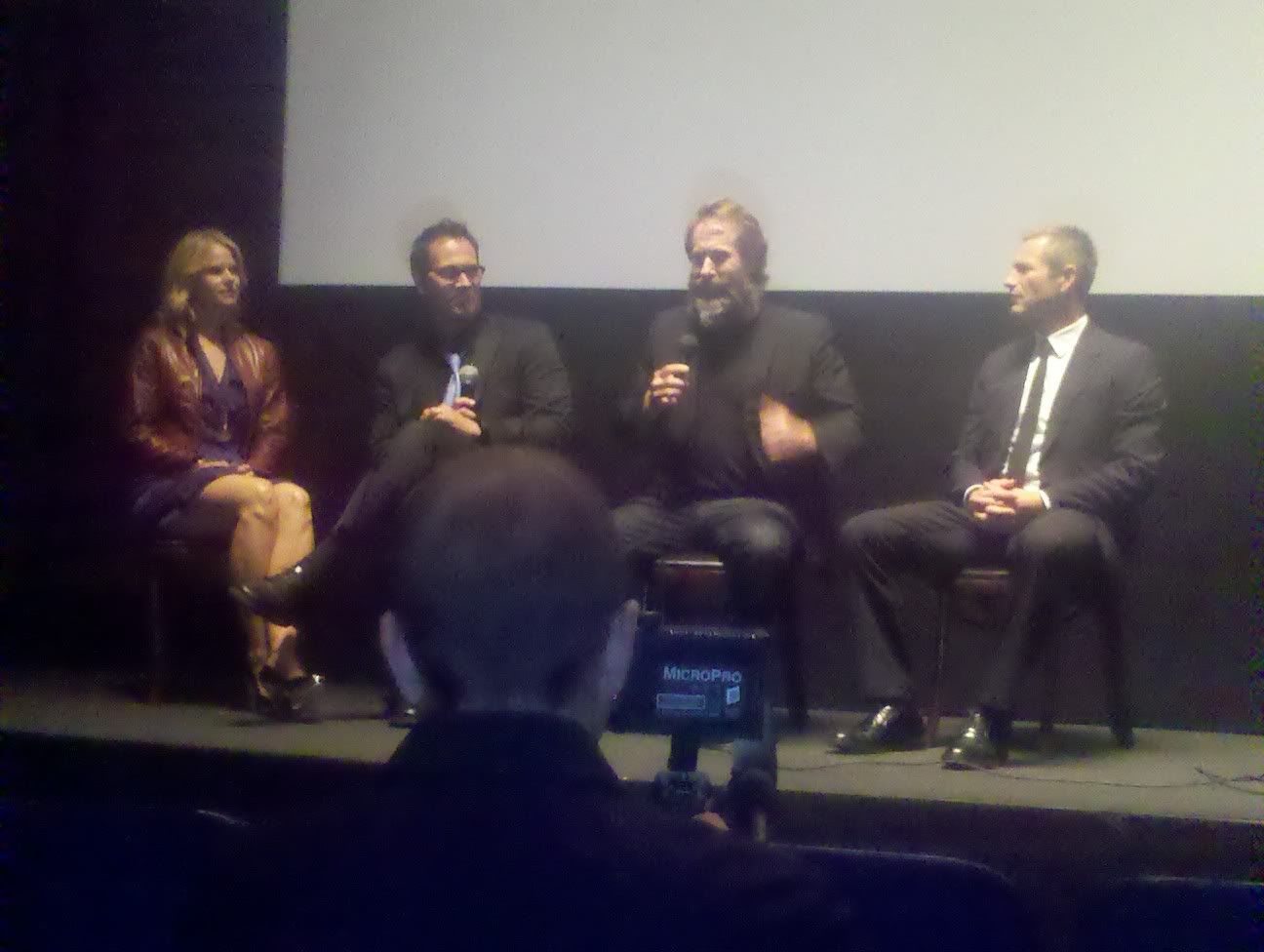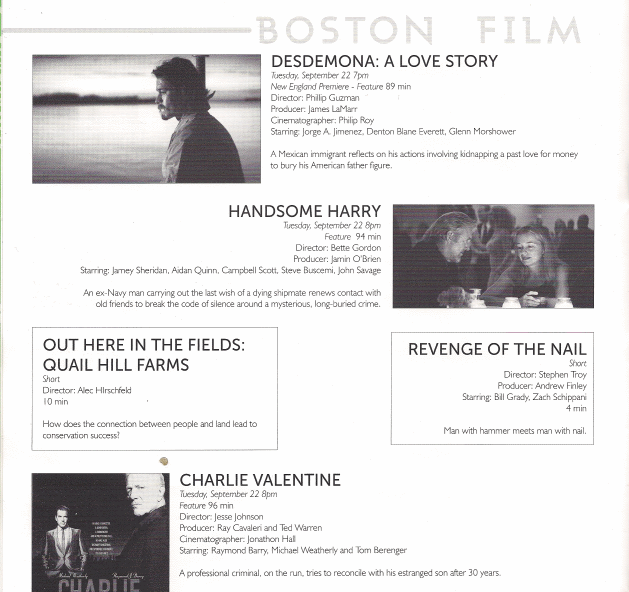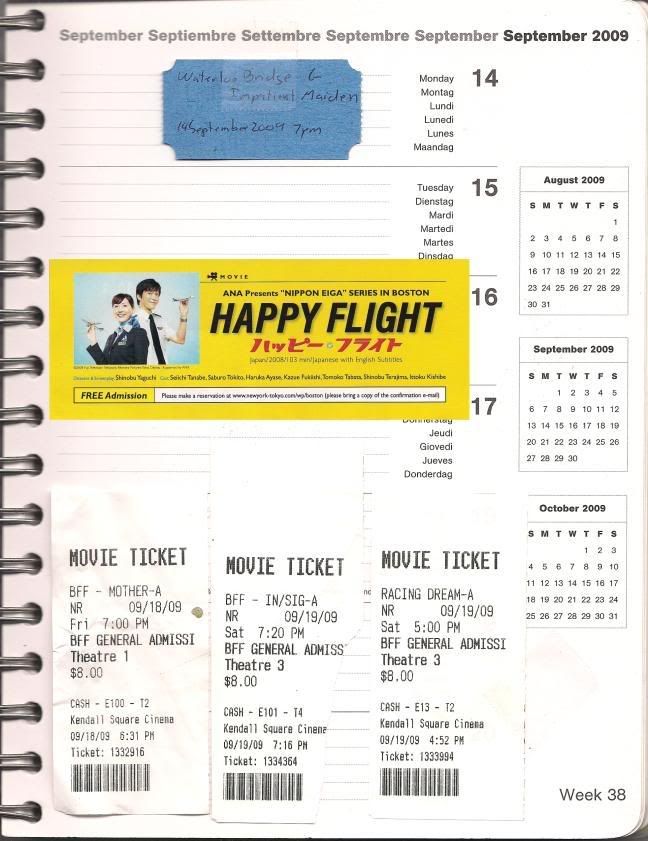Once again, the big release this weekend is opening all over the place, both in the multiplexes and some of the independent places. That's often the sign of something set up to be both a critical and box-office smash, potentially an awards contender. Although, then again, The Debt opened that way a couple of weeks ago.
- That movie this week is Drive, the next step in Nicolas Winding Refn's steady-but-unorthodox infiltration of the Hollywood mainstream. It stars Ryan Gosling as a stunt driver by day, getaway driver by night, who finds everything going sideways after a botched heist. I missed my chance to see Pusher 3 at Fantasia one year, but Refn's previous two English-language features have been intriguing and he's got a very nifty cast, so while the trailer for this one didn't do a whole lot for me at first, it's got serious potential. It's at Boston Common, Fenway, Coolidge Corner, Harvard Square, and Somerville.
Other new releases include a remake of Straw Dogs, whose trailer looks OK, but why do you even bother remaking Peckinpah, even with a decent-looking cast. Plus, I kind of feel like I've seen variations on the "class warfare bringing out the worst in everybody" movie a lot lately. Its polar opposite would appear to be I Don't Know How She Does It, a comedy about a woman who juggles a high-finance job and motherhood. Sarah Jessica Parker stars, with a pretty nice-looking cast behind her. Including Christina Hendricks, who is also in Drive. - Also opening at the multiplex: The Lion King 3D. On the one hand, it's a chance to see a pretty good movie on the big screen, spruced up nice. On the other hand, I can't really think of any movies more thoroughly built for 2D than traditional cel-animated features. Fenway will apparently be having 2D features, while AMC theaters showing it will put $5 on your Stubs card if you've got one.
Boston Common also has some smaller releases on tap: Kevin Hart: Laugh at My Pain, a stand-up/documentary from a comedian who appears to have "next big thing" status. It opened in a several other cities last week to packed crowds, and will actually be showing on two screens during the evening. They also open Farmageddon, a documentary on the supposed war on small farmers who produce and sell raw milk by the FDA, and have Chinese films My Kingdom and Love in Space held over for daily single shows. And, holy crap, is that Bad Teacher back again? I think that's third-run by now. - The Brattle is programmed almost like a regular theater this week, with Rapt starting Friday and running through Thursday. It's a thriller by art-house favorite Lucas Belvaux starring Yvan Attal as a mover and shaker who is kidnapped and held for ransom - but whose scandalous affairs leave his family wondering if he's worth paying to get back. It runs at 4:30, 7:00, and 9:30pm Friday - Monday (with 2:00pm matinees on Saturday and Sunday), but shorter times midweek to accommodate special events: 8:00pm on Wednesday so that Craig Thompson can discuss his new graphic novel at six, and 4:00pm on Tuesday and Thursday for special preview screenings.
The Brattle's website reports that the Tuesday premiere screening of Pearl Jam Twenty is already sold out (but it will open there on the 23rd), but there should still be tickets for Tucker & Dale vs Evil on Thursday the 22nd. I've got no idea if Tucker & Dale will be getting a larger release in Boston, but it should - it's funny, suspenseful, and, yeah, kind of gross at times, a fun inversion of a certain type of horror movie. - Opening Drive shifts Circumstance to a digital room at the Coolidge, withThe Debt remaining on the other 35mm screen. The special screenings include midnights of The Warriors on Friday and Saturday, presumably the original version as opposed to the one that's recently appeared on video with comic book-style transitions. Also at midnight on Saturday is the Betsi Feathers Burlesque Show, which is pretty much what it sounds like, but has the unusual cachet of having a member of the Boston Ballet (Betsi Graves) in the troupe.
Sunday morning features the first entry in the Talk Cinema series; get there early for Thin Ice, which played Sundance this year under the name The Convincer and has Billy Crudup, Greg Kinnear, Lea Thompson, and Alan Arkin in a thriller about a rare violin. And on Monday evening, The French Connection appears on the main screen in its original 35mm glory - worth noting, because the movie on Blu-ray is much different than the one on film; William Friedkin changed the entire look of the film for that release. And on Tuesday night, there is a special Deaf Awareness Week event, with director Ann Marie "Jade" Bryan screening her film If You Could Hear My Own Tune, a romance between a deaf fashion student an a musician. - Relatively quiet week at Kendall Square; they don't get Drive but do get Gun Hill Road, with Esai Morales as a parolee who must both attempt to go straight while his son challenges his beliefs on manhood. The one-week booking is also focused on the inner city, with documentary The Interrupters telling the tale of former gang members in Chicago who have set themselves up as "violence interrupters", intervening to prevent strained situations from erupting into violence. One of those interrupters, Tio Hardiman, will be appearing at the theater in person for the 6:35pm show on Friday (16 September).
- School's back in session, which means ArtsEmerson starts their film programs back up again! They kick the season off with a weekend of movies chosen by film critic Dave Kehr, including a double feature of pre-code movies by Raul Walsh on Friday - Me and My Gal with Spencer Tracy and Joan Bennett, which also runs Saturday the 17th at 2pm, and Sailor's Luck with James Dunn and Sally Eilers, which also runs Sunday the 18th at 2pm. The Saturday movies include The Driver, directed by Walter Hill, which is over a quarter car chases, and Wim Wenders's The American Friend, an adaptation of Ripley's Game with Dennis Hopper in the main role.
- They're also busy at Harvard, with the bulk of the weekend at the Film Archive reserved for Viva l'Italia!: The Risorgimento on Screen, which features a number of films chronicling the nineteenth century unification of Italy from various city-states. That's Friday, Saturday, and Sunday afternoon; Sunday and Monday evenings are a program called "For My Crushed Right Eye - The Visionary Films of Toshio Matsumoto". Matsumoto was originally scheduled to visit, but it appears he has cancelled, although the psychedelic, experimental films may be a draw on their own.
- The MFA has a quiet week - no screenings on Friday, Saturday, Monday, or Tuesday, and just a short film program running Sunday as part of the Linde Family Wing for Contemporary Arts Open House. Also Wednesday and Thursday feature documentaries on artists whose works are posted in those wings - Ellsworth Kelly, Alex Katz, and El Anatsui, as well as a Wednesday (the 21st) screening of Kenya: Passing the Baton, a short documentary on the surprising breakdown and reconstruction of the nation over the past five years, with a panel discussion after the screening.
- There's actually several notable things happening at the Regent in Arlington: Saturday evening features two showings of "The Restaurant", a short film starring Lenny Clarke, Tony V, Patty Ross, Frank Santorelli, and many other local comedians as the waiters and customers in a Boston restaurant hear that a director who likes to cast unknowns is in town and angle to get discovered. On Tuesday the 20th, the Banff Mountain Film & Book Festival presents the "Radical Reels" program, a collection of short adventure-sport films, a theme that continues on Wednesday and Thursday with two Women in Adventure Sports film packages. All three of those nights figure to be action-packed, while "The Restaurant" promises red carpets and meet & greets with the cast.
- You know who else likes red carpets? The Boston Film Festival; I half-suspect that getting to hobnob with celebrities is the entire reason that this current iteration of the festival exists. It's a pretty thin-looking line-up this year, with Eric Shaeffer's new movie - After Fall, Winter - appearing to be the big World Premiere. Wednesday night does look somewhat promising, with The Trouble with the Truth and Fort McCoy, and Thursday Night's closing film still unannounced.
I've been bagging on and bailing on this festival more and more over the past few years (and I'm tempted to try and guess the winners of its awards by listing the highest-profile people scheduled to be there in person), but I honestly take no pleasure in how thin it looks in 2011; it's honestly sad to see what it's reduced to, with nothing that looks terribly likely to crack theaters, a venue in the Stuart Street Playhouse that hasn't actually shown a movie in months, and even the usual list of expensive parties missing in action.
My plans? Drive. Rapt, I think. Maybe Contagion. Some of the stuff at ArtsEmerson, though I'll likely miss the Friday night double feature (Burlington to Downtown Crossing by 6pm just ain't happening). I'll probably go for The Lion King in 3D, because I have a hard time denying curiosity. And, who knows, maybe I'll even check something out at the Boston Film Festival out.
